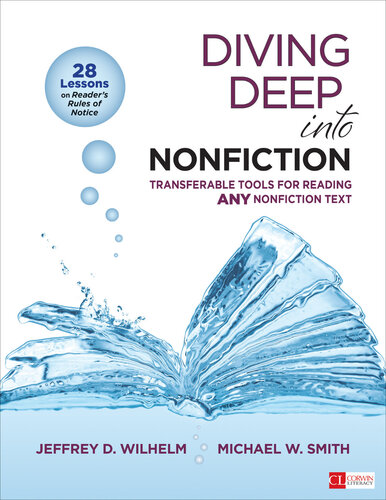

Most ebook files are in PDF format, so you can easily read them using various software such as Foxit Reader or directly on the Google Chrome browser.
Some ebook files are released by publishers in other formats such as .awz, .mobi, .epub, .fb2, etc. You may need to install specific software to read these formats on mobile/PC, such as Calibre.
Please read the tutorial at this link: https://ebookbell.com/faq
We offer FREE conversion to the popular formats you request; however, this may take some time. Therefore, right after payment, please email us, and we will try to provide the service as quickly as possible.
For some exceptional file formats or broken links (if any), please refrain from opening any disputes. Instead, email us first, and we will try to assist within a maximum of 6 hours.
EbookBell Team

4.1
70 reviews"General reading strategies and teacher-developed questions will only take our students so far—with our approach, students gain astounding independence because they engage directly with the nonfiction author, and with how that author used specific details (moves) and structures to communicate meanings and effects."
—Wilhelm and Smith
All nonfiction is a conversation between the writer and the reader, an invitation to agree or disagree with compelling and often provocative ideas about some aspect of the world we live in. At the end of the day, it's our responsibility to decide if the argument is sound. With Diving Deep Into Nonfiction, Jeffrey D. Wilhelm and Michael W. Smith deliver a revolutionary teaching framework that helps students read well by noticing the rules and conventions of this dynamic exchange.
The classroom-tested lessons include engaging short excerpts and teach students to be powerful readers who know both how authors signal what's worth noticing in a text and how readers connect and make meaning of what they have noticed.
No matter what they are reading, students learn to be on high alert, and highly curious about how texts work and what they mean, as they learn to notice direct statements of principle, calls to attention, ruptures, and readers' rules of notice: